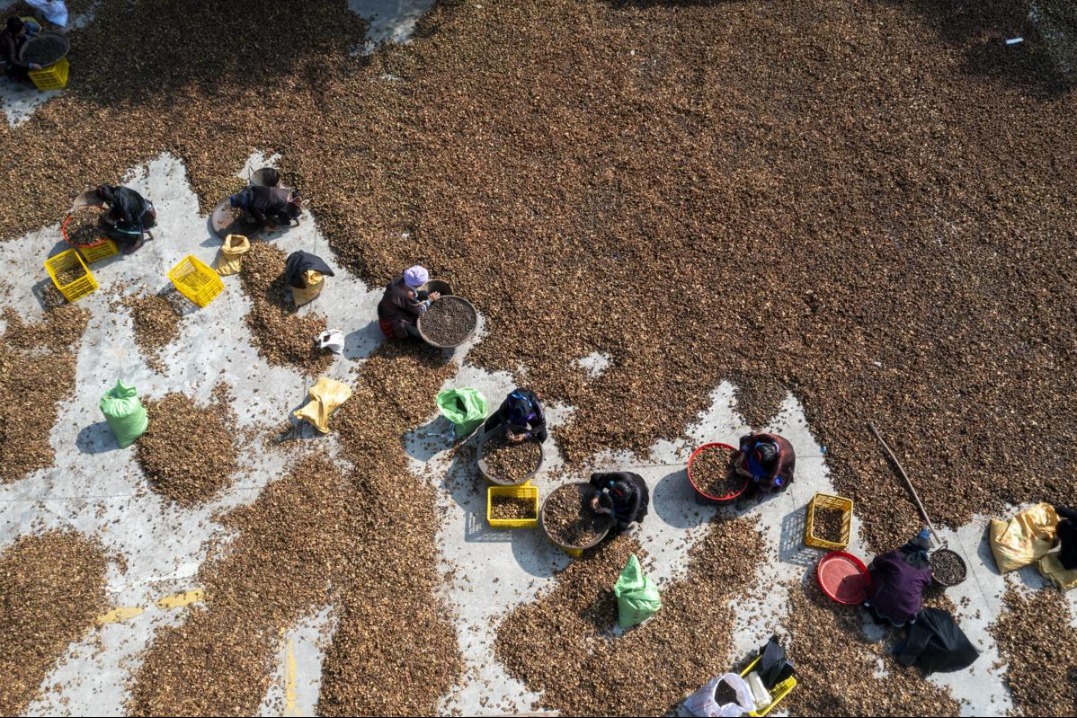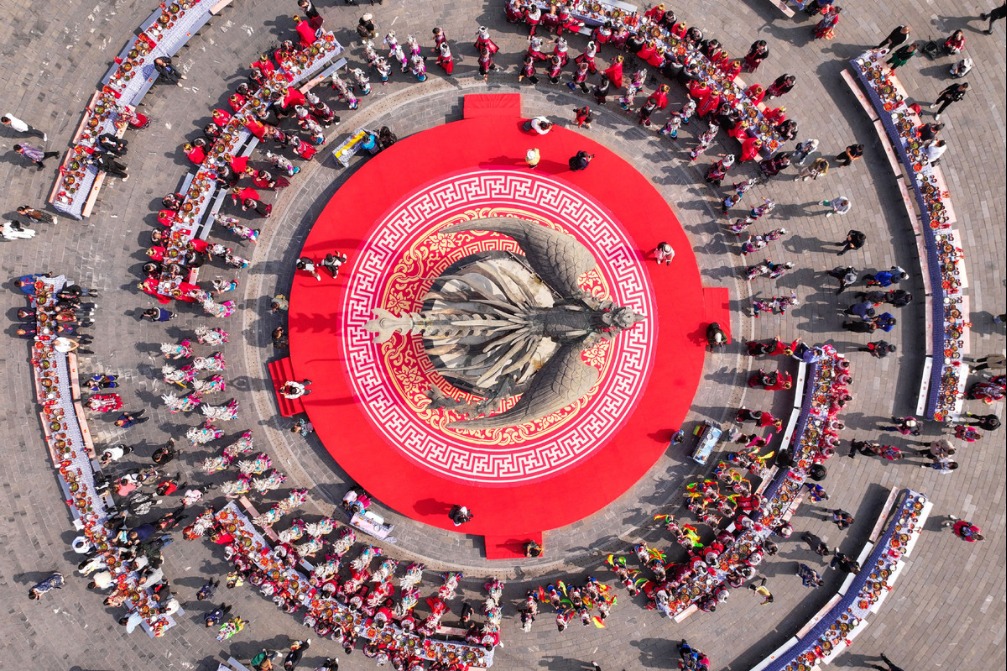University programs yield fruitful results
Enrollment for newly founded Chinese language major will begin next year


As China-Brazil relations continue to deepen, the cooperation over a decade between Hubei University in China and Sao Paulo State University in Brazil is yielding more fruitful results.
The two universities and the Center for Language Education and Cooperation under China's Ministry of Education have recently signed an agreement at the opening ceremony of the Second World Chinese Language Conference in Beijing, to jointly set up a Chinese language major.
Deng Xiaoming, director of Hubei University's international exchange and cooperation office, said the enrollment will begin next year, with an initial intake of about 20 students per year. The two universities will jointly design the curriculum and teach for the new major, with students studying in Brazil for two years and at Hubei University for another two years. Students who fulfill the graduation requirements of the two universities will obtain degrees from both.
"After graduation, they can pursue further studies for a master's degree in international Chinese language education at Hubei University and undertake an internship at the Confucius Institute at the Sao Paulo State University," Deng said.
Their cooperation dated back to 2008, when they jointly established Brazil's first Confucius Institute.
"The reason for co-establishing the institute with Hubei University is because we realize that Brazilian students learning Chinese are key to nurturing a new generation of researchers and professionals who can contribute to strengthening bilateral relations between China and Brazil," said Luis Antonio Paulino, the Brazilian director of the Confucius Institute.
Over the past years, the institute has provided Chinese language courses to more than 34,000 students, with nearly 1,000 students participating in Hubei University's Chinese language study and short-term exchange programs in-person or online. It also organizes numerous Chinese cultural activities every year, serving as an important window for local residents to understand Chinese society and culture, Paulino said.
"As this year marks the 50th anniversary of the establishment of diplomatic relations between China and Brazil, the cultural activities celebrating the anniversary include a Chinese film exhibition, a Chinese percussion music concert and a Sino-Latin American academic forum," he said.
Paulino said the institute also hosted the sixth edition of a recruitment fair in April, with over 30 Chinese-funded enterprises offering more than 300 job positions, attracting a record number of over 1,500 applicants.
He said Chinese films and literature are gaining popularity in Brazil, and the Brazilian people are showing a growing appreciation for Chinese dance and music, as well as a greater interest in learning Chinese language. Additionally, all major Brazilian universities are actively seeking to establish cooperation with Chinese universities.
"The greatest charm of Chinese culture lies in its unique combination of a 5,000-year-old heritage with vibrant and innovative modernity, which is unparalleled in human history," Paulino said.
Ye Dan, Chinese director of the Confucius Institute, said Hubei University has sent over 180 international Chinese language teachers and volunteers to the institute over the years.
Currently, 13 Chinese language teachers and eight volunteers are working at the Confucius Institute, along with 20 teachers providing remote classes, she said.
Ye said the institute organized nearly 40 students from different provinces, cities and industries in Brazil to travel to Hubei in July for exchange programs lasting from one to four weeks. In addition, 20 students who have earned the International Chinese Language Teachers Scholarships for one semester or one academic year have commenced their studies at Hubei University this year.
Thanks to the institute's efforts, the two universities signed a letter of intent for the joint establishment of a Chinese language major and a memorandum of understanding for scientific research cooperation in March, she added.
The friendly ties have also facilitated the cooperation and exchanges between cities in the two countries, with Wuhan, capital of Hubei, having established friendly exchange relationships with the Brazilian cities of Sao Paulo and Sao Luis, Deng said.
Contact the writers at [email protected]
- University programs yield fruitful results
- Decades of bilateral fossil study unearths discoveries
- China, Brazil make progress on 7th satellite
- China clarifies criminal penalties for noncompliance with court rulings
- Xi calls on China, Britain to adopt rational, objective perspective on each other's development
- President Xi at APEC Peru 2024




































